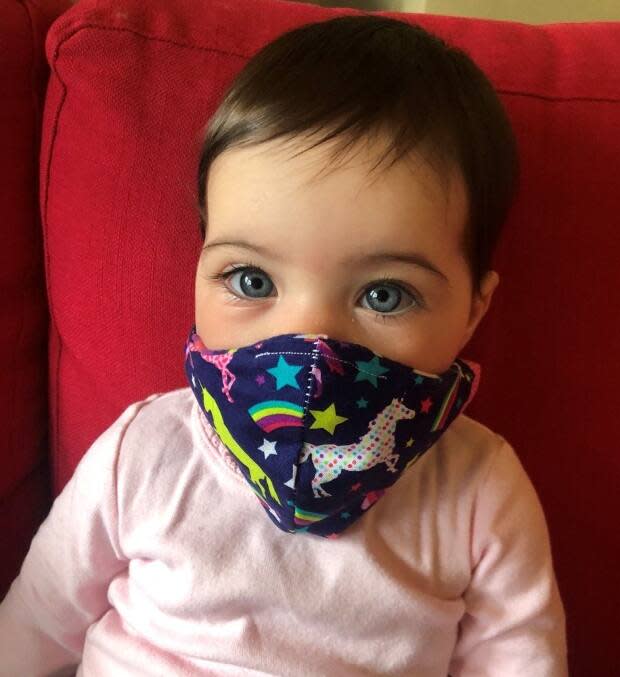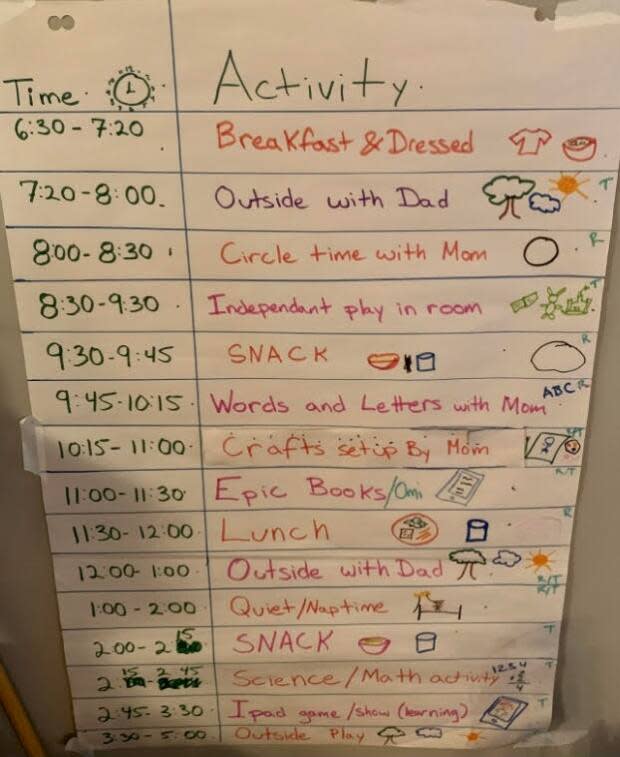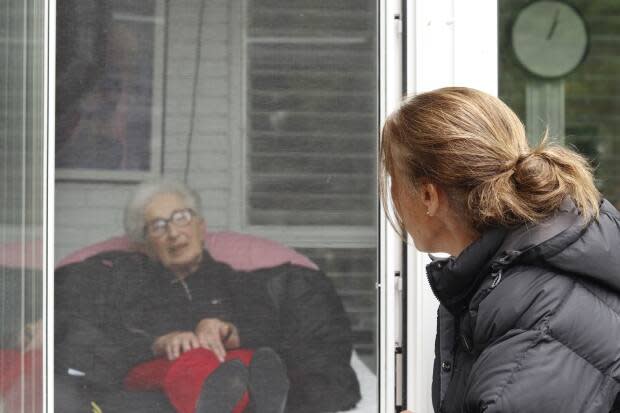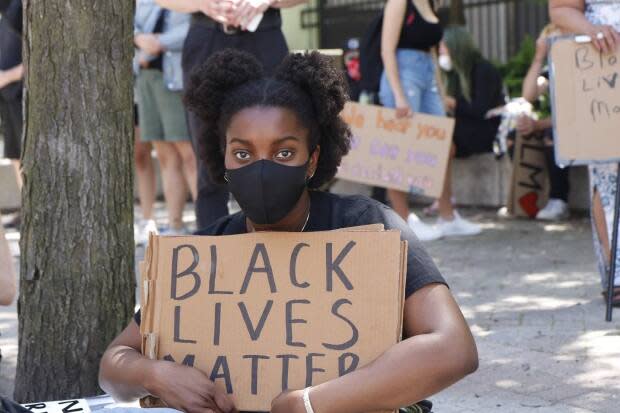For COVID-19 archivists, history's happening now

Archival records can offer a vivid view of the historic moments that shape us, but how do we capture the moment when we're in the middle of it?
The City of Ottawa Archives, in collaboration with Carleton University and the University of Ottawa, is documenting this particular period in history by asking residents for their photos, correspondence, artwork and any other records that might show future generations what it was really like to live through the COVID-19 pandemic.
They put the call for submissions out last year, and their collection has been growing steadily ever since.

"It's not normal for an archives to document events while they occur. We tend to want a few years to pass by," explained City of Ottawa archivist John Lund.
"We all have different experiences and reactions to what's happened with COVID-19, but at the same time it's something that we all as a group, as a whole, are experiencing, which is a rare thing these days."

Digital images make up the majority of the submissions so far, largely because pandemic restrictions meant archivists have been unable to accept physical donations.
Many of the images depict relatively mundane events that have taken on new significance because of the context — a trip to the grocery store or a long-delayed haircut, for example. Others demonstrate how Ottawans have persevered and even thrived during this time through art and other creative outlets.

Diane Jesmer submitted several photos to the COVID-19 collection, including one shot of a Skype call with friends taken early in the pandemic.
"For the first couple months you were just in isolation, and you felt you were alone in the world," said Jesmer, a recently retired UPS courier whose two sons live in Vancouver.
"Just that visual connection makes all the difference. It just felt like something was missing, and now it's been filled."
Jesmer also submitted a short story set during what she called "The Great Pause." Although she wrote it well before vaccine passports became a popular topic of discussion, Jesmer noted at one point in the story a character is asked to show her "vac card."
"I'm not clairvoyant, but." Jesmer joked.
Justin Wright submitted a series of comic strips to the collection. One depicts a nurse facing all kinds of challenges on the job, but when asked if she ever feels like quitting, she sees a smiling little girl leaving the hospital and replies, "Never."

Wright said he created the comic at the request of his wife's aunt, a longtime emergency room nurse in Barrie, Ont.
"The health-care workers have been bearing the brunt of it, and yet they haven't just walked away, so there's some inspiration to be taken from that I think," he said. "These folks are the ones who are really holding it together for us right now."

Barriers to reflecting all experiences
Lund acknowledged the collection generally reflects a certain kind of pandemic experience, namely the view of the creative class. Others who have been suffering through the past year and a half have less time on their hands to come up with contributions that reflect its darker legacy.
"When you're in the middle of your business collapsing, you're not really thinking about this," Lund said. "Is that experience being fully documented here? I would say no."
Lund hopes when the dust finally settles, people will have time to submit different kinds of records that reflect a wider experience — a ledger from a shop that couldn't survive, for example.

For Wright, submitting records for future historians to look back on was an opportunity to show what those of us who lived through COVID-19 were made of.
"We were all just sort of muddling through it. A lot of stuff went sideways, but there were still people out there keeping it together, showing that we can pull together, that we can be inspired, and I think that's a good message for future generations."


